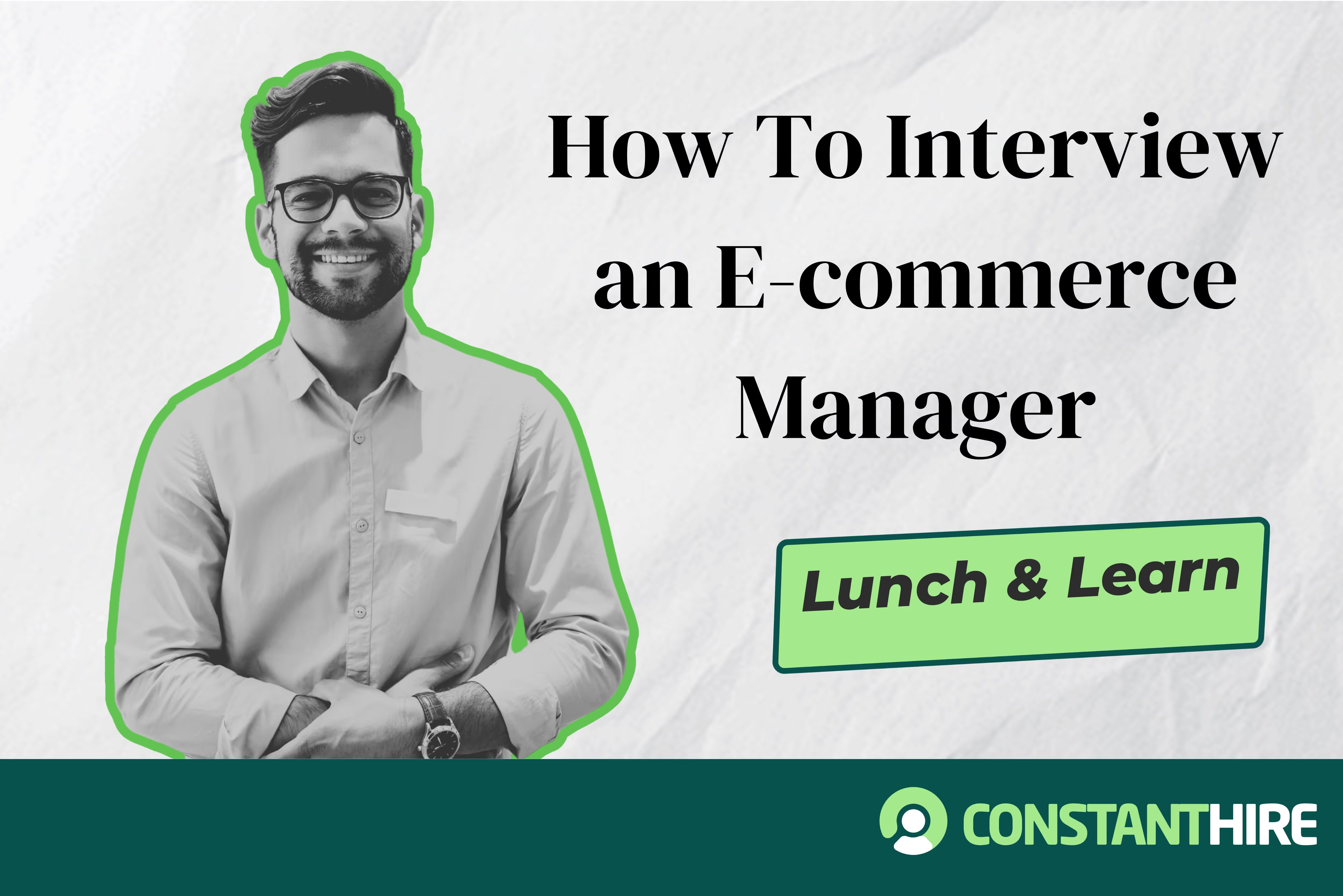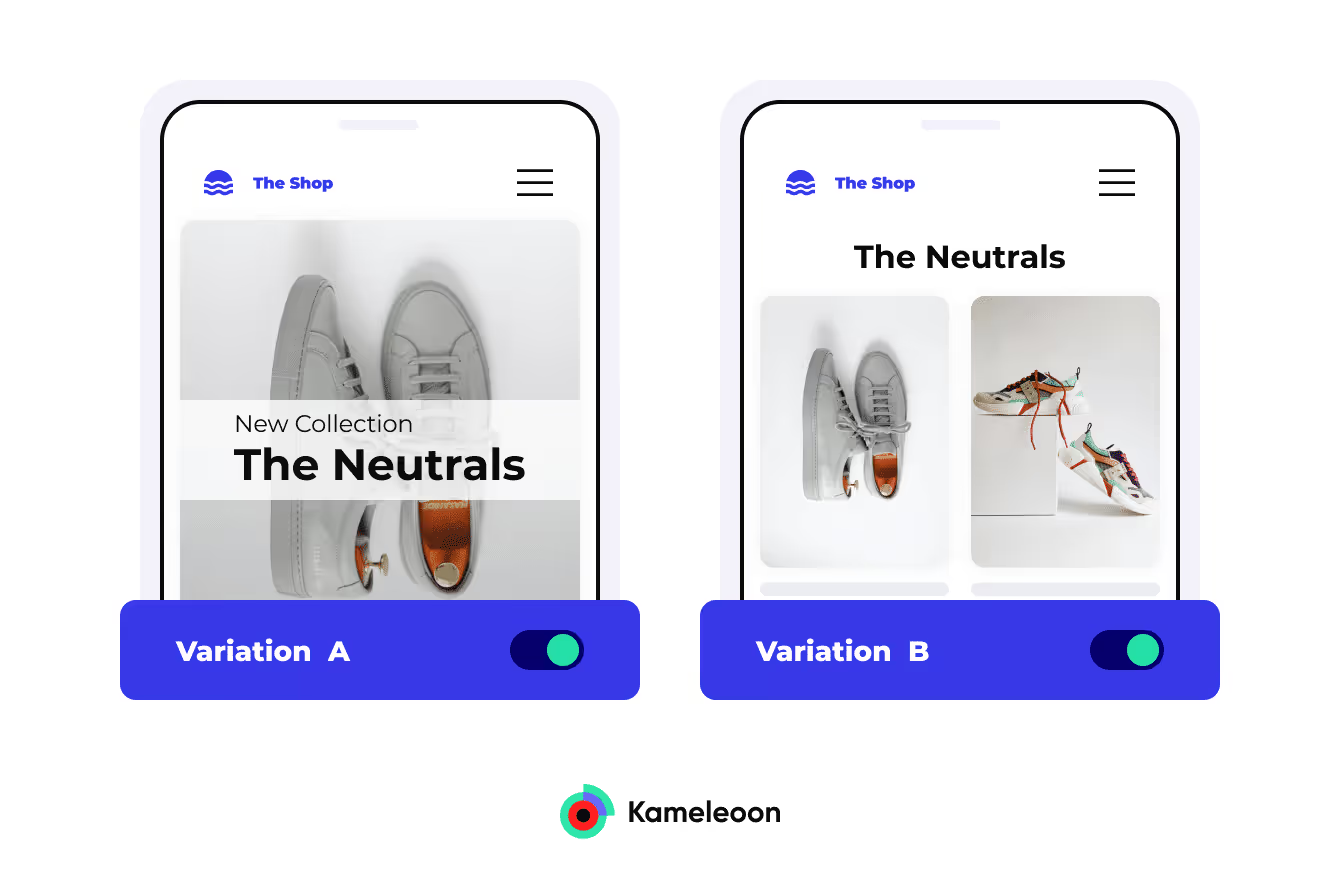How To Interview an E-commerce Manager


Hiring an E-commerce Manager can be one of the most impactful moves a DTC brand makes. This person owns the Shopify storefront, the early touch points of the customer journey, and often part of retention. Get the hire wrong, and your site stalls out. Get it right, and you unlock growth without extra ad spend.
This guide breaks down the key responsibilities, the metrics they should own, and exactly what to ask in interviews (plus what good vs. bad answers sound like).
An E-commerce Manager is the operator who ensures your online store doesn’t just look good but actually drives revenue. They’re responsible for managing the Shopify (or Shopify Plus) storefront, optimizing the customer journey, and coordinating with design, development, and marketing teams to keep everything running smoothly.
Unlike a media buyer who focuses on traffic, the E-commerce Manager focuses on what happens once that traffic hits your site: conversion, AOV, product launches, and overall customer experience. In many ways, they’re the quarterback of your digital storefront.
What it is:
CRO is about turning more site visitors into customers. It’s the art and science of testing copy, layouts, CTAs, offers, and flows to squeeze more revenue out of the same traffic.
How brands run tests:
Good managers run structured A/B or multivariate tests, prioritize ideas, and document results. Tools like Google Optimize or Intelligems make this easier, but the process is more important than the tool.
Examples of CRO tests:
“Tell me about the last CRO test you ran. What was the hypothesis, setup, and result?”
✅ Good answer: Clear hypothesis, tied to a metric, measured properly, and a takeaway that influenced future tests.
❌ Bad answer: “We tried a button color and conversions went up.” No rigor, no learning.
“If you joined tomorrow, what’s the first CRO test you’d run here?”
✅ Good answer: Thoughtful, brand-specific idea (e.g. “Bundle your top SKU to push AOV since your catalog is limited”).
❌ Bad answer: Generic answers like “test the homepage.”

This is the core of the job. They don’t need to code, but they need to live and breathe Shopify or Shopify Plus.
Key responsibilities:
“Walk me through how you’d launch a new product on our site.”
✅ Good answer: Covers PDP build, asset coordination, bundles, QA, and channel support.
❌ Bad answer: “I’d just add it to the site.”
“How do you decide which products to bundle or feature on the homepage?”
✅ Good answer: Uses sales velocity, margin, and testing history to guide decisions.
❌ Bad answer: “Whatever looks good.”
At a certain scale, most brands switch to Shopify Plus for lower processing fees and better features. Someone who’s led a migration has proven they can handle complexity. This is not a requirement, but is a great sign that they are comfortable using the product that is typically inudstry standard
“Have you ever migrated a site to Shopify Plus? What changed?”
✅ Good answer: Talks through migration plan, working with agencies, PDP rebuilds, and realized savings.
❌ Bad answer: “I’ve used Shopify Plus” but can’t explain differences.
Running a 10-SKU site is different from running a 5,000-SKU one. A good manager can handle complexity like category structures, filters, bundles, and navigation.
“What’s the largest SKU count you’ve managed, and how did you structure it?”
✅ Good answer: Explains nav hierarchy, merchandising strategy, and bundle building.
❌ Bad answer: Has only managed a handful of products with no thought for complexity.
Running a store with a single hero SKU is dramatically easier than a large catalog like an apparel brand
An E-commerce Manager should own the site’s core numbers. Without that, you’re hiring a task-taker, not an operator.
Typical KPIs:
“What metrics did you report on weekly in your last role?”
✅ Good answer: Lists CVR, AOV, add-to-cart, and ties them to actions they took.
❌ Bad answer: “Revenue.”
“Tell me about a time you moved one of those metrics.”
✅ Good answer: “We added a ‘complete the set’ bundle and raised AOV 12%.”
❌ Bad answer: Vague, can’t tie actions to outcomes.
This role often acts as the hub connecting creative, ops, dev, and growth. Poaching an E-commerce manager from a small company might be a good idea (because they can wear a lot of hats) but you'll want to make sure they're comfortable managing external stakeholder and hitting deadlines.
Key responsibilities:
“How do you keep multiple teams aligned during a launch?”
✅ Good answer: Mentions tools like Asana, timelines, briefs, accountability.
❌ Bad answer: “I just check in with people.”
“Tell me about a project that went off the rails. What did you do?”
✅ Good answer: Owns a real mistake, explains the fix, and what process improved.
❌ Bad answer: Claims nothing’s ever gone wrong.
A quick hack: check the candidate’s past brand websites. You'd be shocked how few interviewers do this, and in reality it's often much better than any resume could be! A polished PDP with subscription, strong visuals, UGC, and upsells usually means they were on top of their game.
“Can you show me a site you owned and what parts you were responsible for?”
✅ Good answer: Points to PDPs, explains decisions (UGC, bundles, checkout flow), shares results.
❌ Bad answer: Takes credit for a site that’s sloppy or can’t explain design choices.
Some candidates list ad buying experience. Which is fine, but an E-commerce Manager is not a growth marketer. They should collaborate with media buyers, not replace them.
“How do you work with growth teams or media buyers?”
✅ Good answer: “I don’t buy media, but I build PDPs/landing pages that support campaigns.”
❌ Bad answer: “I managed all ads and the site” (spread too thin, not deep in either).
An E-commerce Manager should not be thought of as a Shopify admin. The right person will own your site performance, run experiments that move conversion rates, launch products the right way, and make sure the storefront always supports growth.
During interviews, focus on specifics. Ask for examples, press on metrics, and dig into what they actually owned at previous brands. A strong candidate will be able to connect their work directly to business results.
Hire well here and you will have someone who consistently drives revenue from the customers already visiting your site, while freeing you up to focus on bigger strategic bets
Top talent on your calendar in under 5 days.